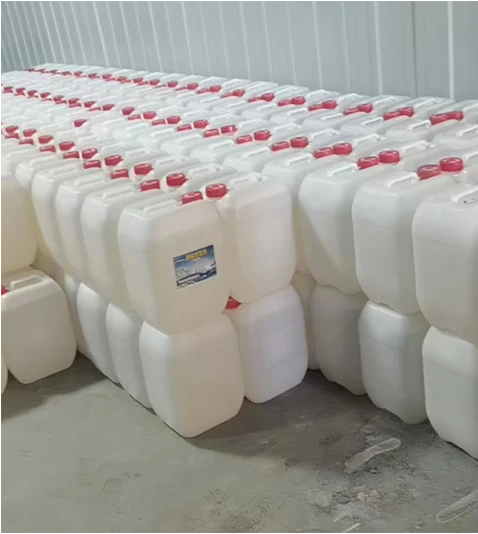
Nov . 20, 2024 10:24 Back to list
meaning of glacial acetic acid
Understanding Glacial Acetic Acid Definition, Properties, and Applications
Glacial acetic acid is a significant chemical compound with the chemical formula CH₃COOH. It appears as a colorless, hygroscopic liquid with a pungent odor and a sour taste, and it is often recognized as one of the simplest carboxylic acids. The term glacial refers to its ability to solidify into ice-like crystals at low temperatures (specifically below 16.6°C or 62°F), distinguishing it from its diluted form, which is commonly found in household vinegar.
Definition and Properties
Glacial acetic acid is highly concentrated acetic acid, usually containing 99% or more acetic acid by weight. This high concentration lends itself certain unique properties, such as its ability to serve as a solvent and chemical reagent. It has a boiling point of approximately 118°C (244°F) and a melting point around 16.6°C (62°F). The high acidity of glacial acetic acid makes it a useful agent in various chemical reactions, especially in organic synthesis.
Being a polar solvent, glacial acetic acid can dissolve many organic and inorganic substances, making it invaluable in laboratory and industrial settings. However, it's important to note that glacial acetic acid is corrosive, and proper safety precautions (like using personal protective equipment) must be taken when handling it to avoid skin burns, respiratory issues, and eye damage.
Industrial Applications
Glacial acetic acid is widely used in various industries. One of its primary applications is in the production of acetate esters, which serve as solvents in coatings, inks, and adhesives. Additionally, these esters have applications in the manufacturing of plastics and textiles. For example, acetic anhydride, derived from glacial acetic acid, is extensively used in making cellulose acetate, utilized in photographic films and cigarette filters.
meaning of glacial acetic acid

Another significant use of glacial acetic acid is in the food industry. While glacial acetic acid is too concentrated for direct consumption, it is diluted to produce vinegar, a common food preservative and flavoring agent. The controlled addition of acetic acid also helps maintain the acidity and flavor profile of various food products.
Furthermore, in the pharmaceutical realm, glacial acetic acid is used as a reagent in the synthesis of various medications. It serves as an intermediate in the production of compounds such as aspirin and other analgesics. Besides pharmaceuticals, it also plays a role in manufacturing rubber, textiles, and cleaning agents.
Environmental Considerations
While glacial acetic acid has numerous benefits, its production and use must consider environmental impacts. Although it can be derived from renewable resources, such as biomass, the traditional methods involve significant energy input and chemical processes that can release pollutants. Therefore, researchers are exploring more sustainable production methods to minimize environmental footprints.
Conclusion
In summary, glacial acetic acid is not only a cornerstone chemical in various industrial applications, but it also plays an important role in daily life through products like vinegar. Understanding its properties and potential applications helps in utilizing this powerful compound while ensuring safety and environmental responsibility. Whether in laboratories, factories, or kitchens, glacial acetic acid is indeed an indispensable component of modern chemistry and industry.
-
SmartAgri Solutions - Precision Farming&Soil Monitoring
NewsJul.13,2025
-
Industrial Solutions-Example Inc.|Smart Manufacturing&Energy Efficiency
NewsJul.13,2025
-
Food Grade Glacial Acetic Acid-Pure Quality|High-Purity Acetic Acid,Food-Grade Chemical
NewsJul.13,2025
-
Industrial Efficiency Solutions-NextGen Technologies|Advanced Automation&Data-Driven Analytics
NewsJul.12,2025
-
Smart Manufacturing Solutions-Example.com|Enhance Efficiency&Reduce Costs
NewsJul.12,2025
-
Food grade glacial acetic acid
NewsMar.07,2025
